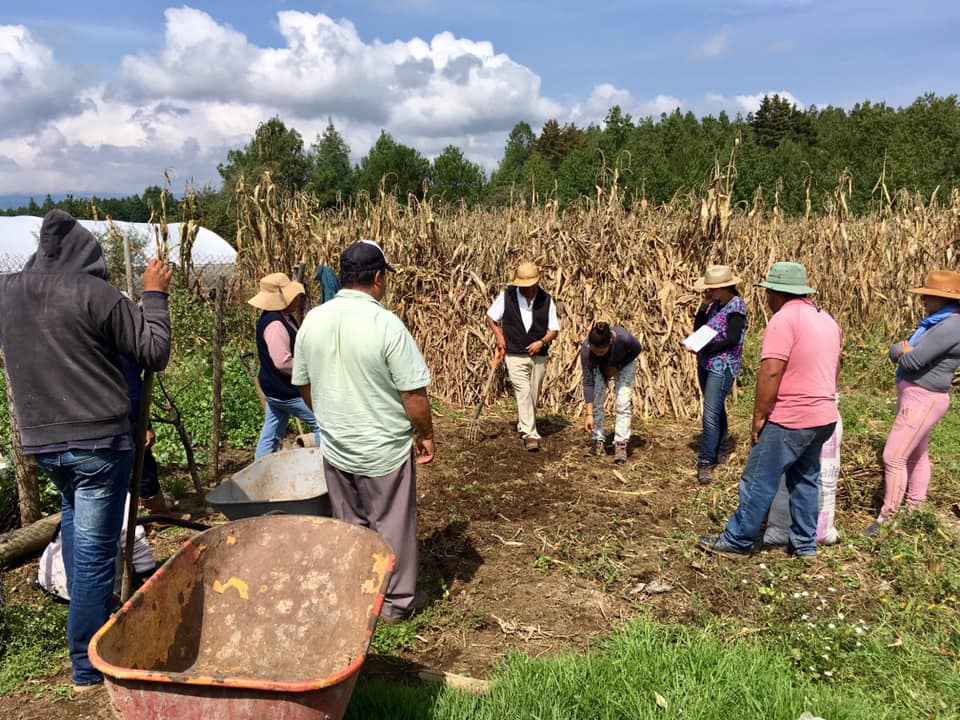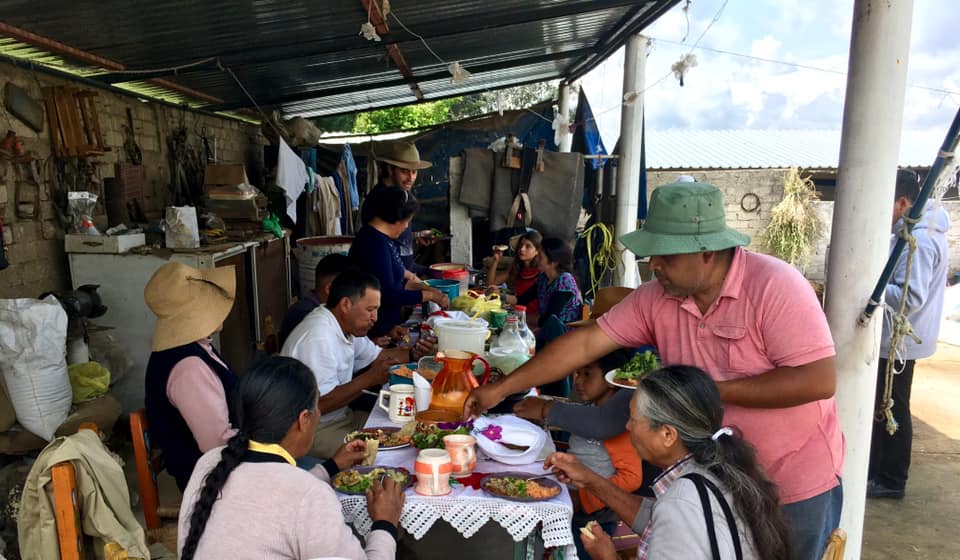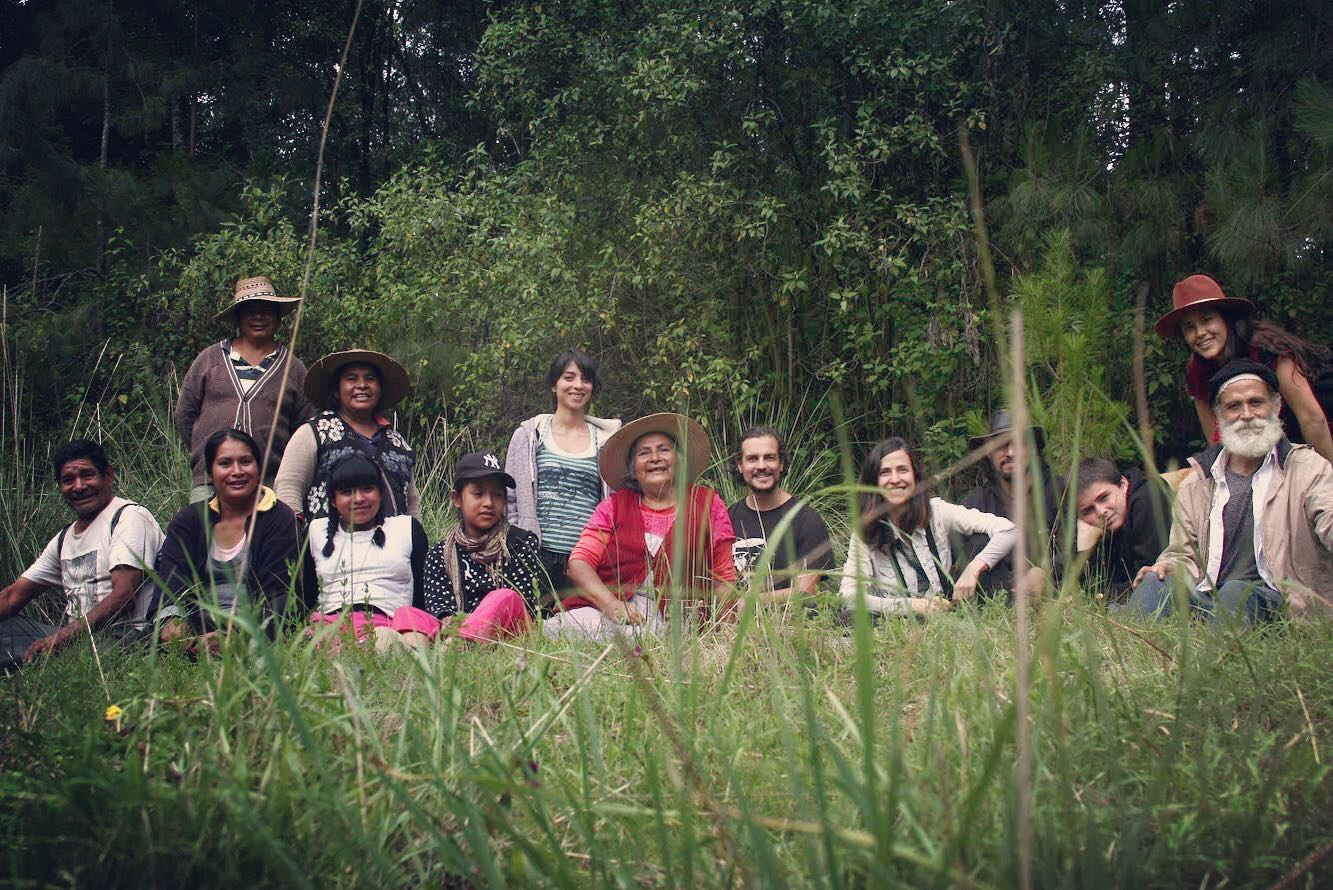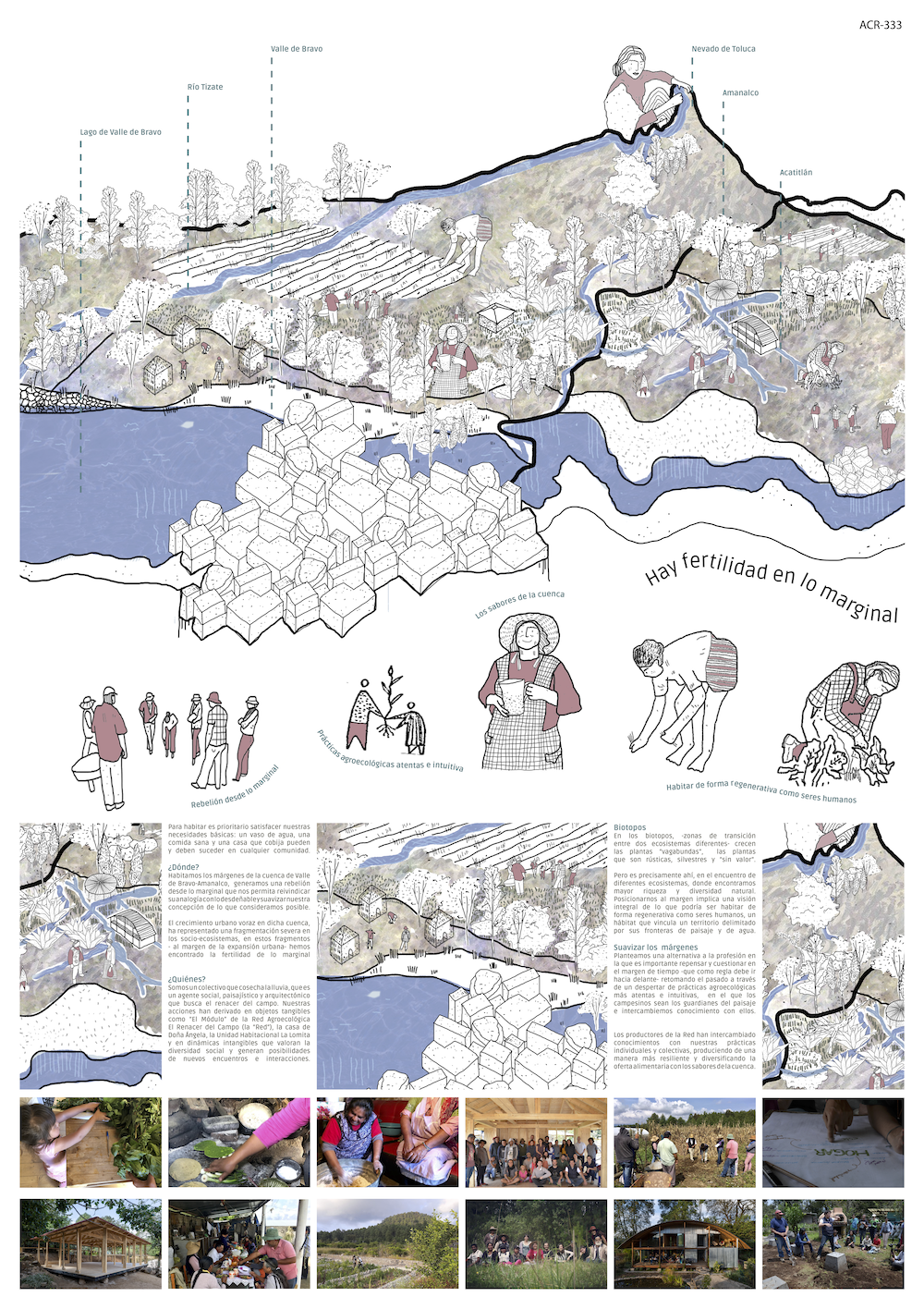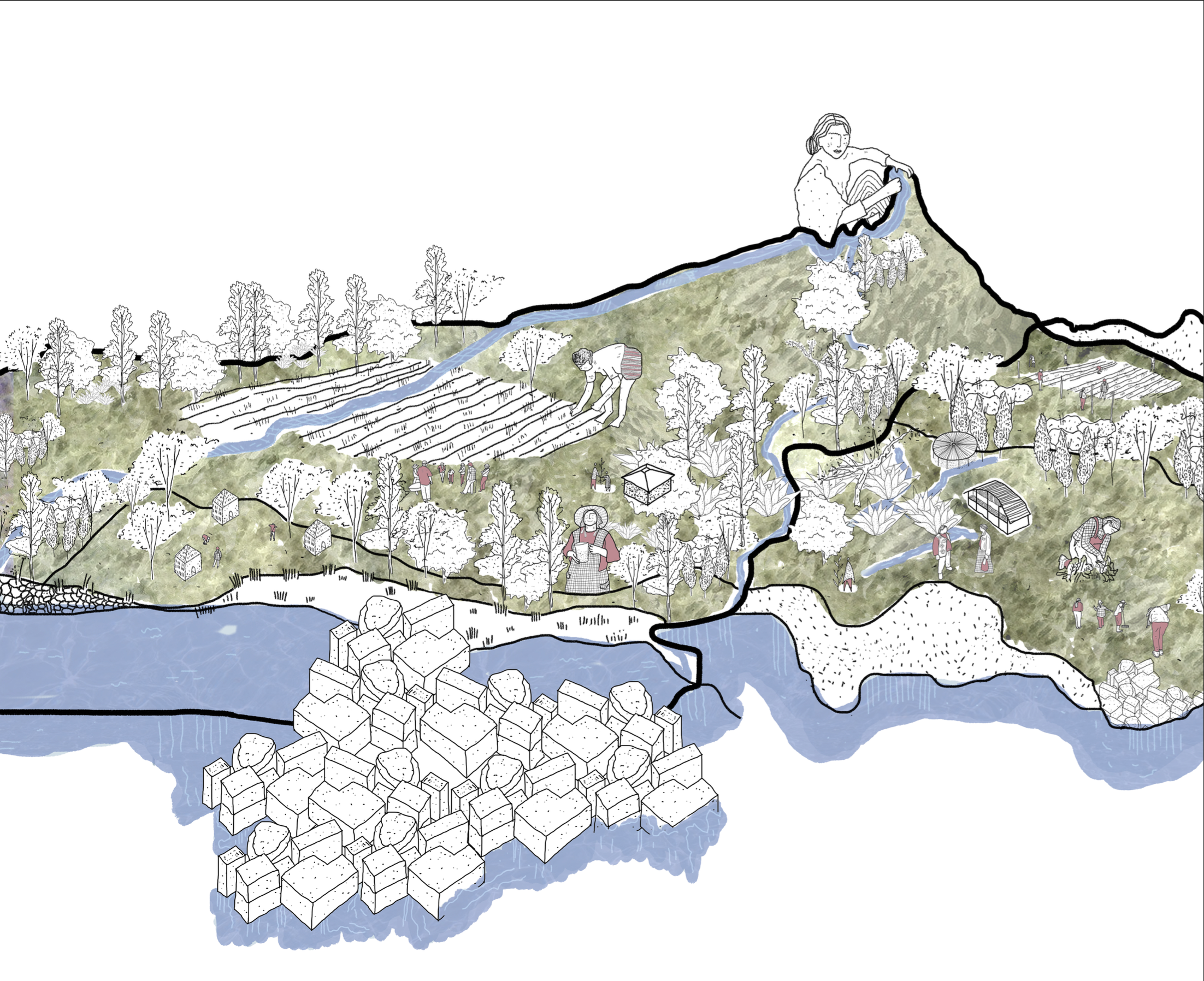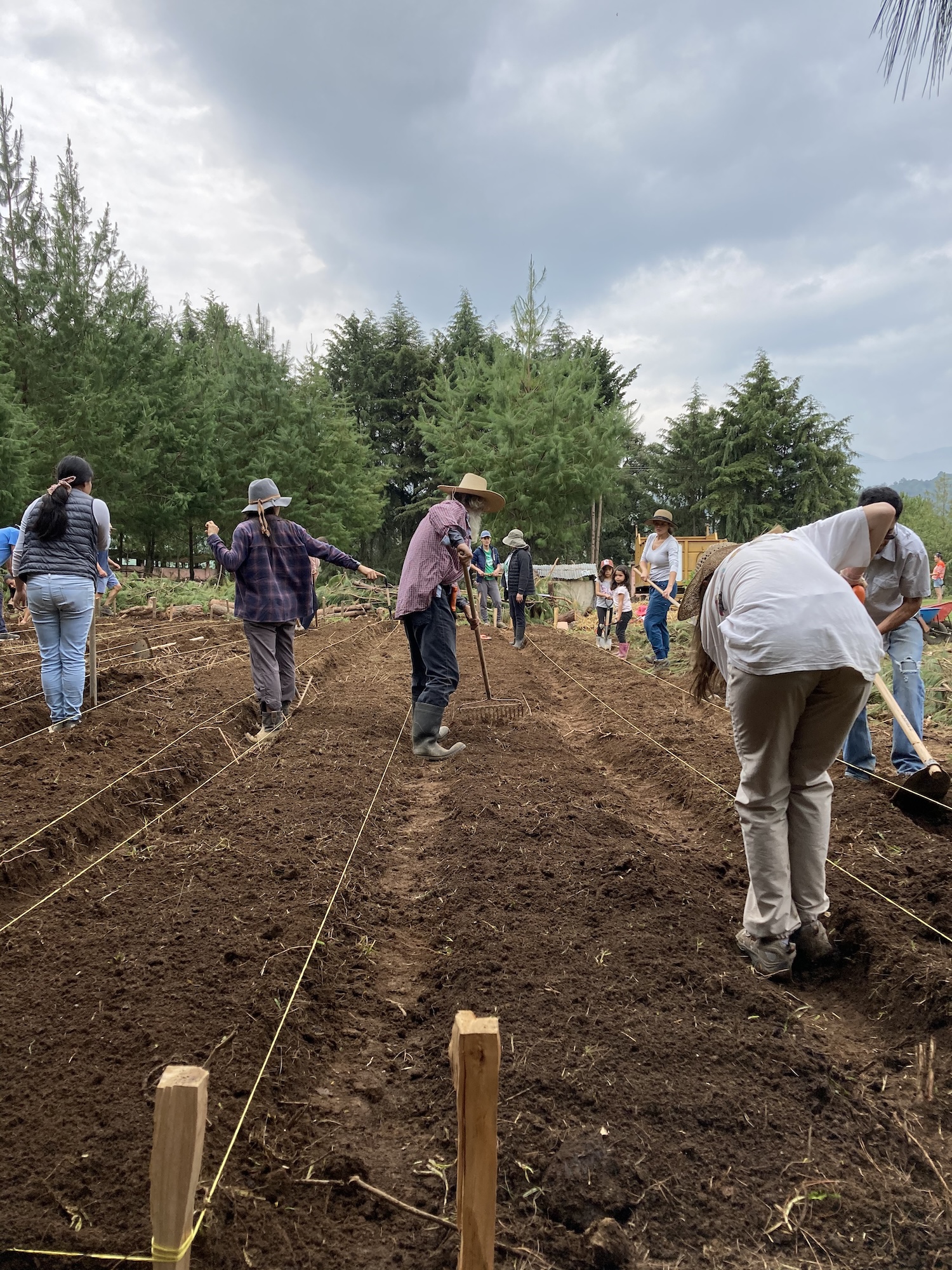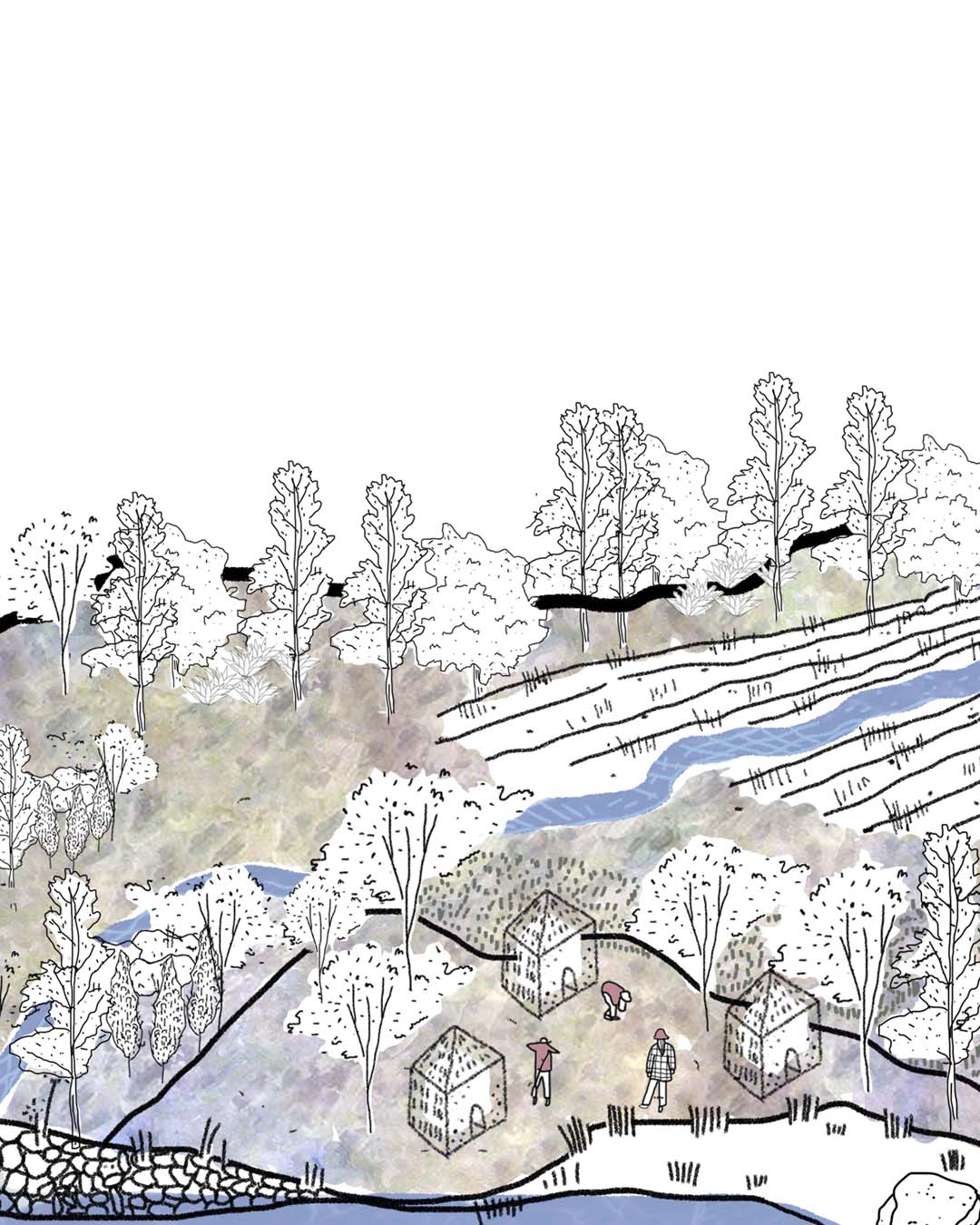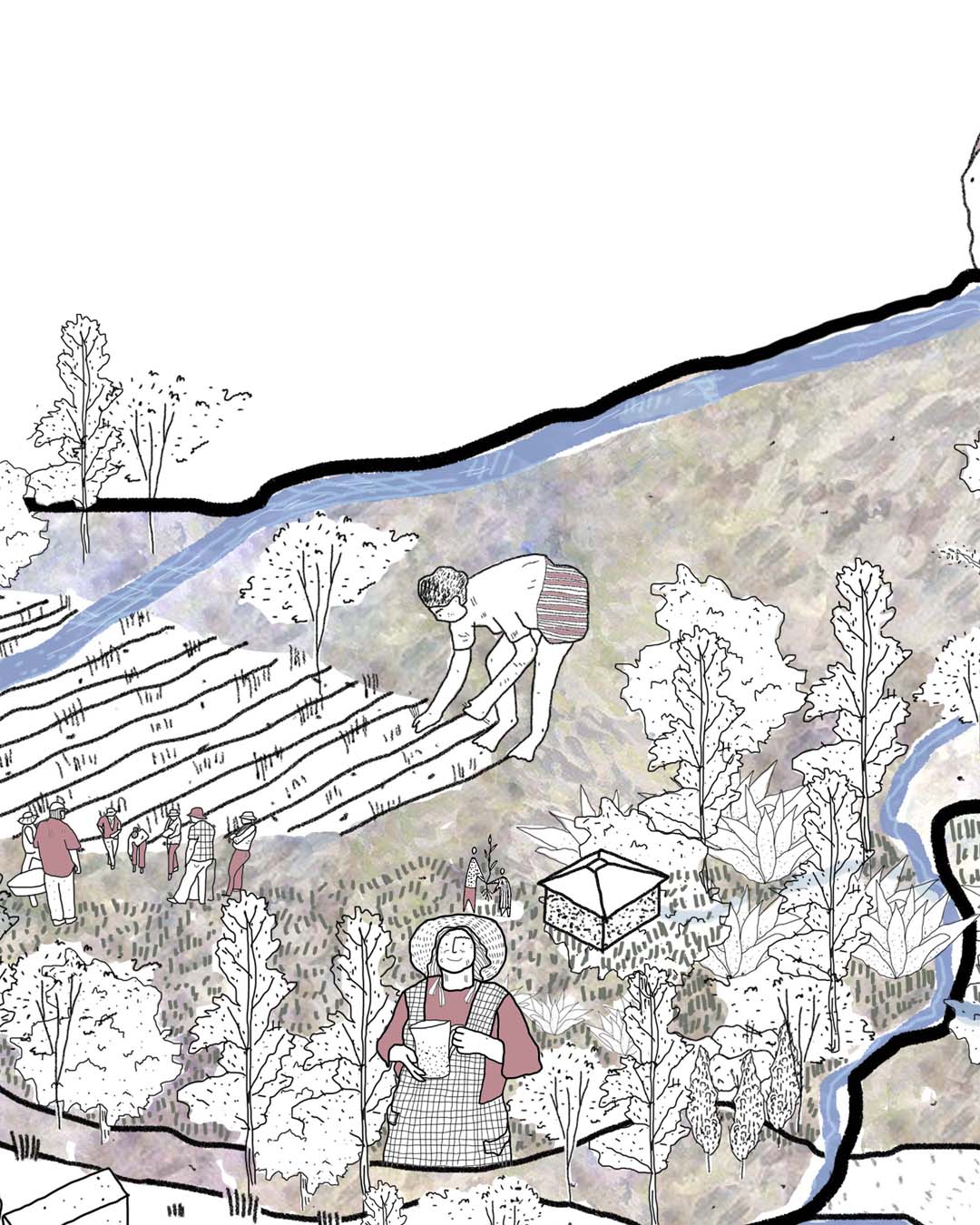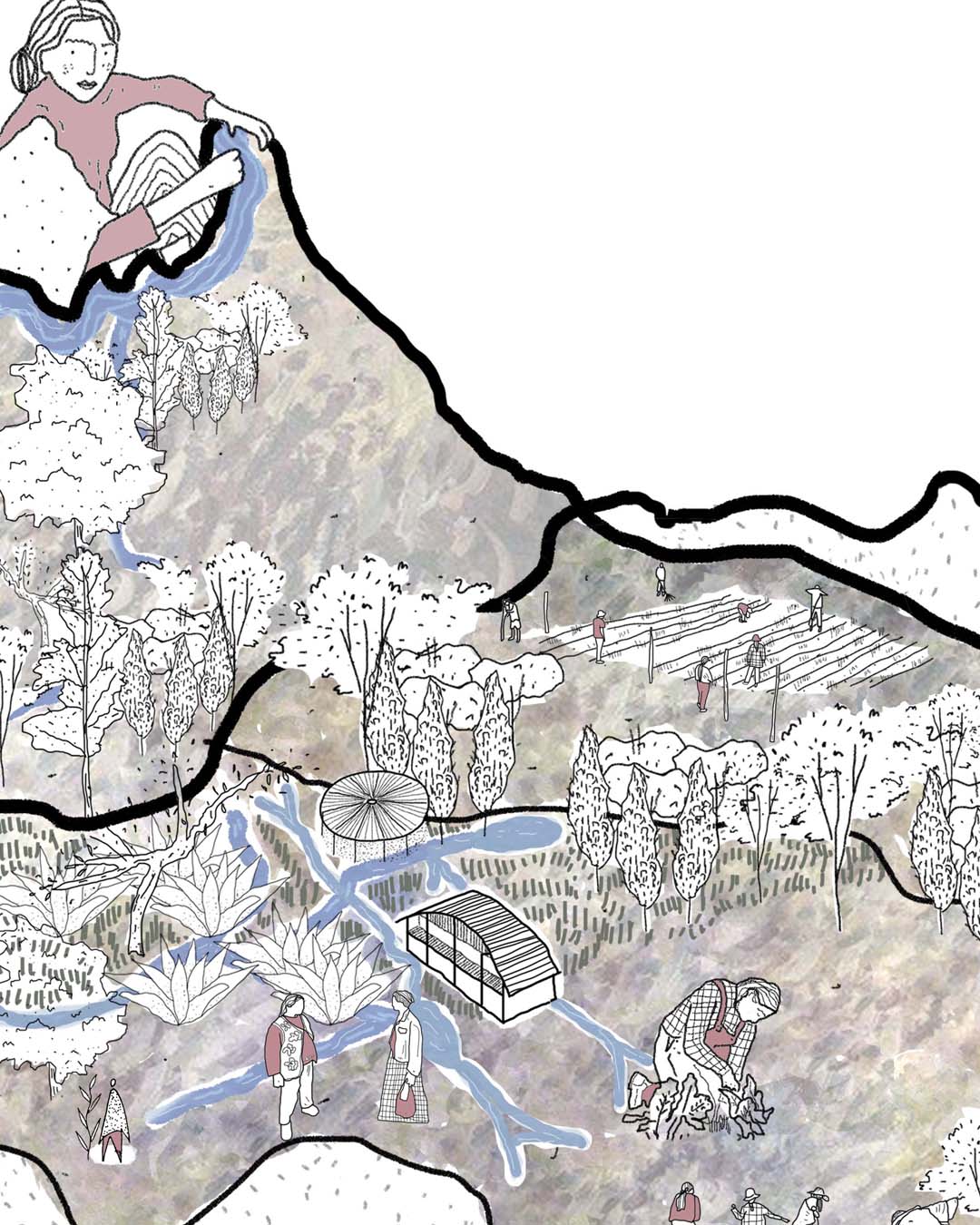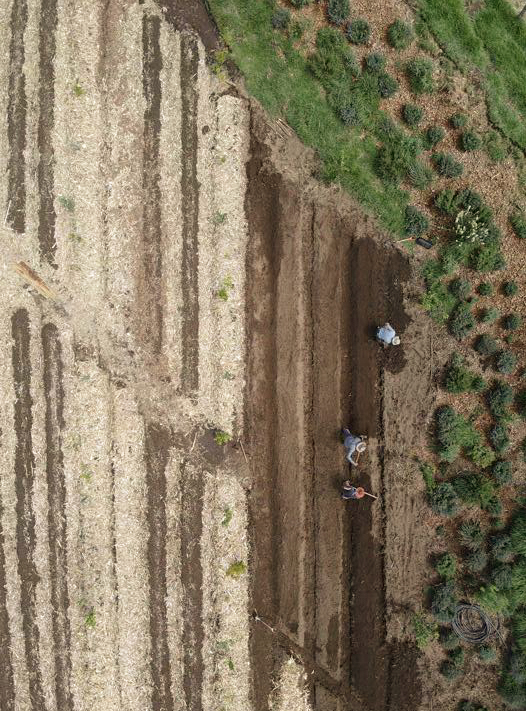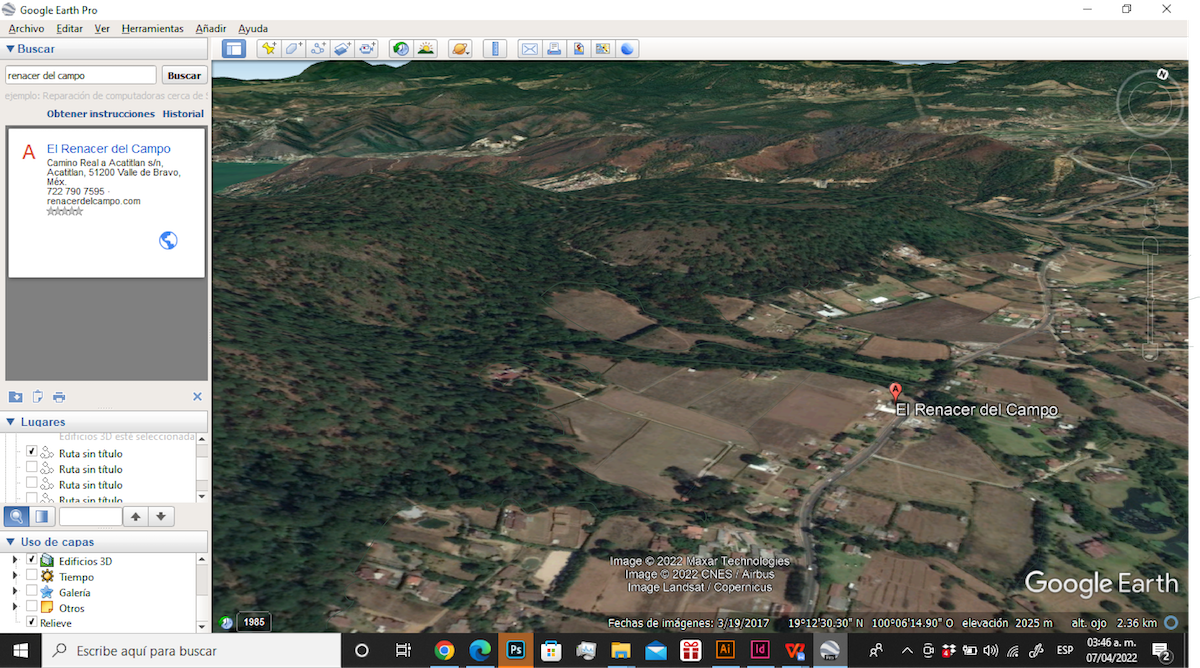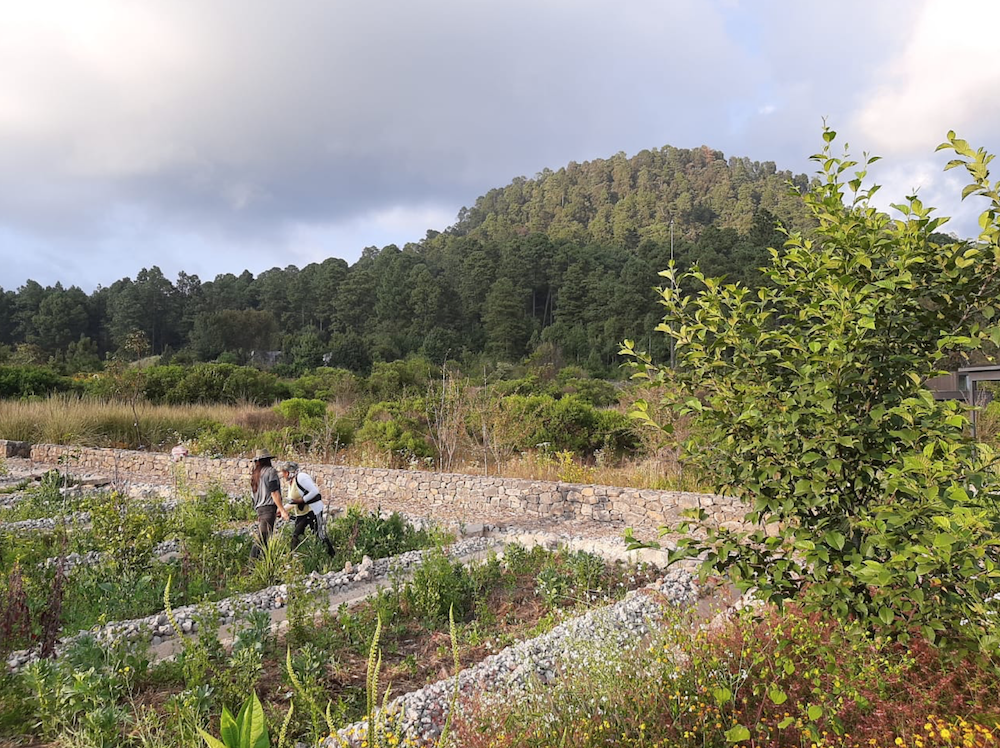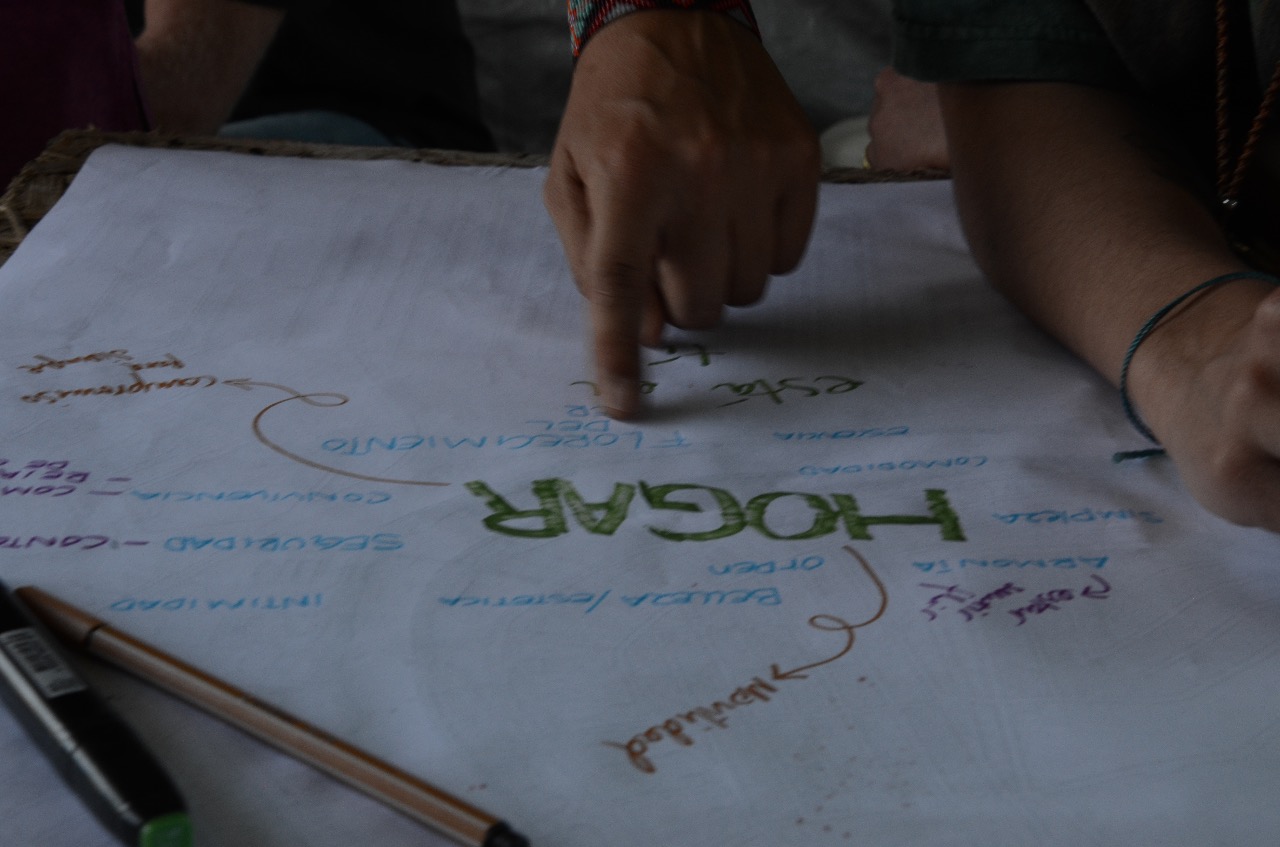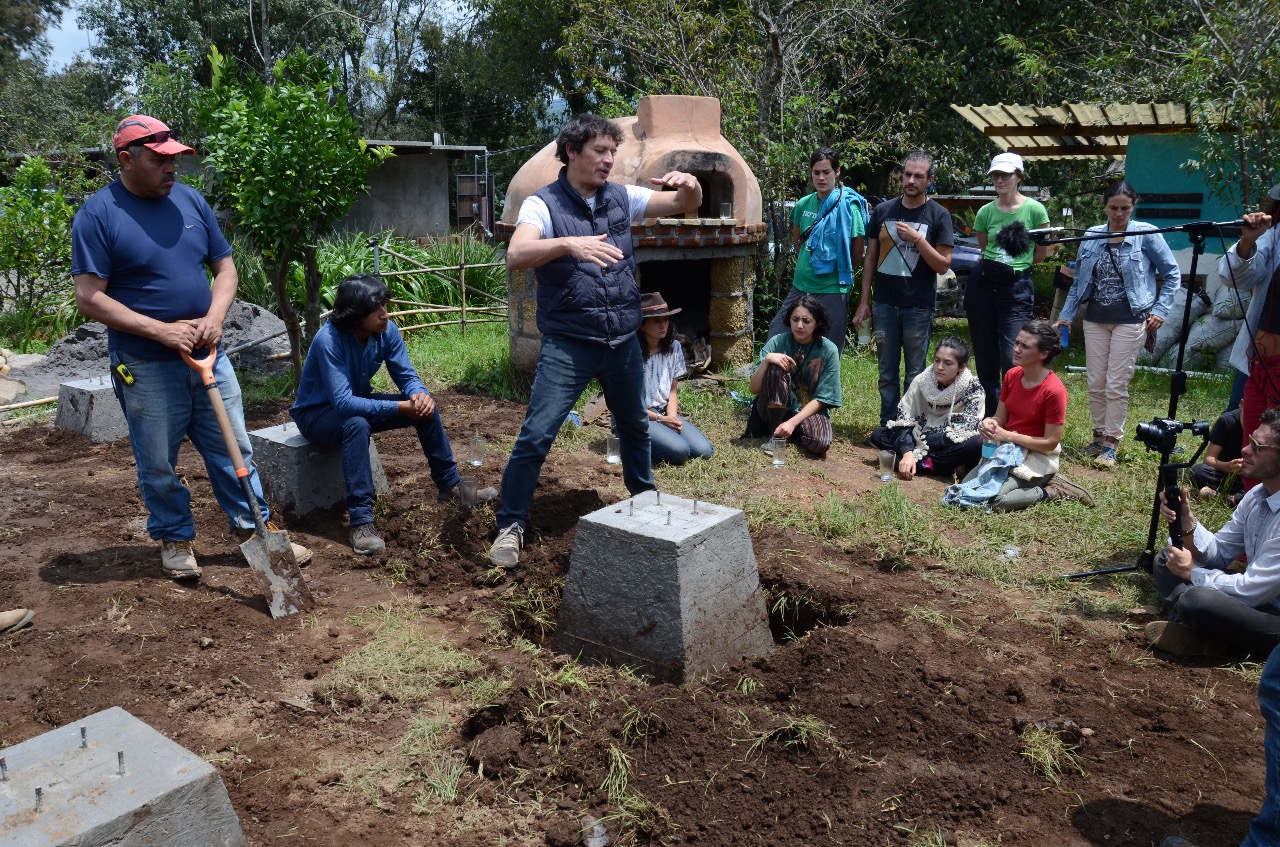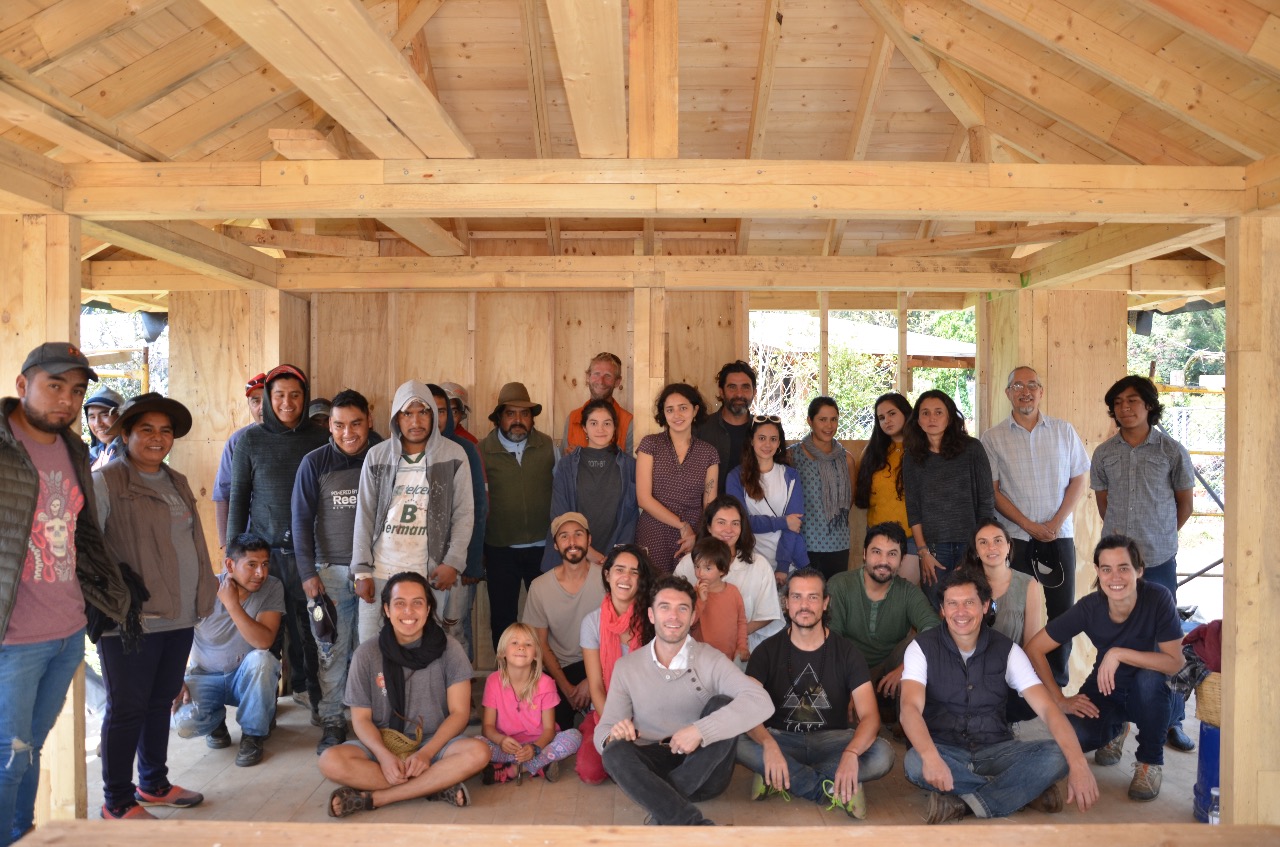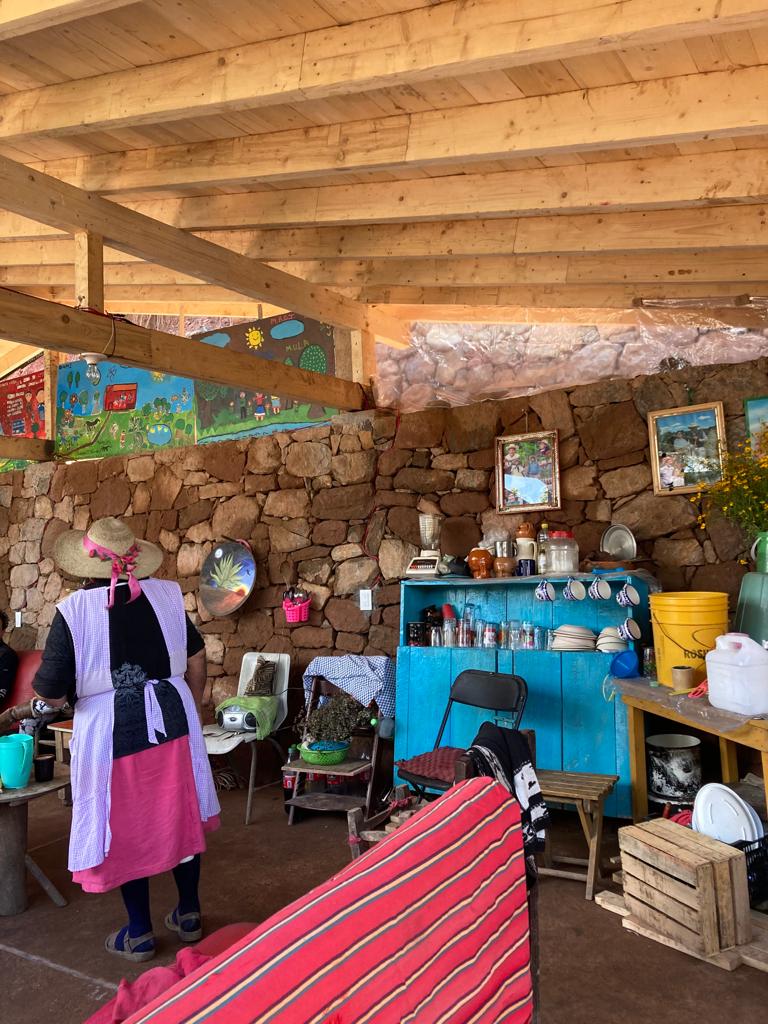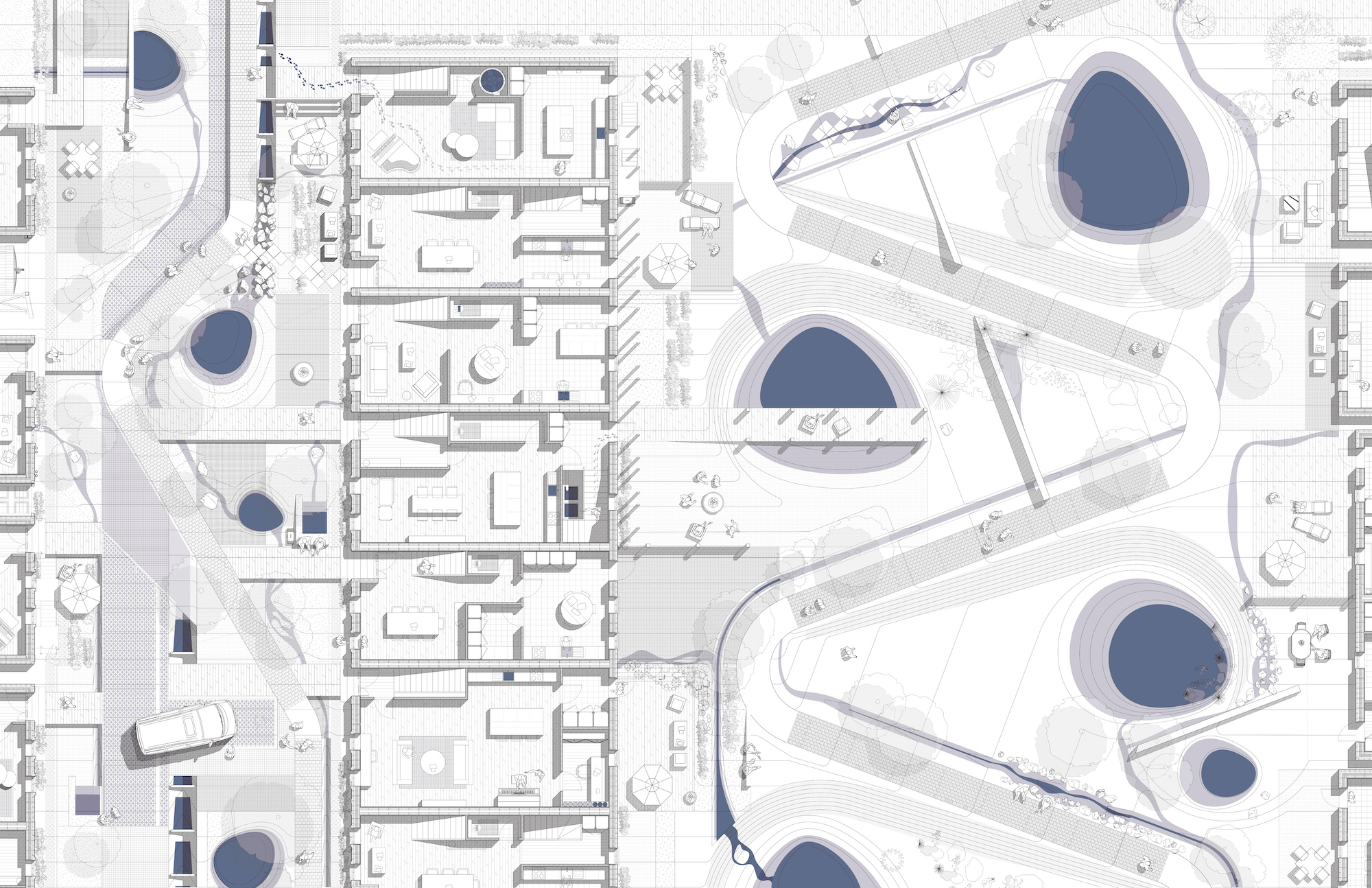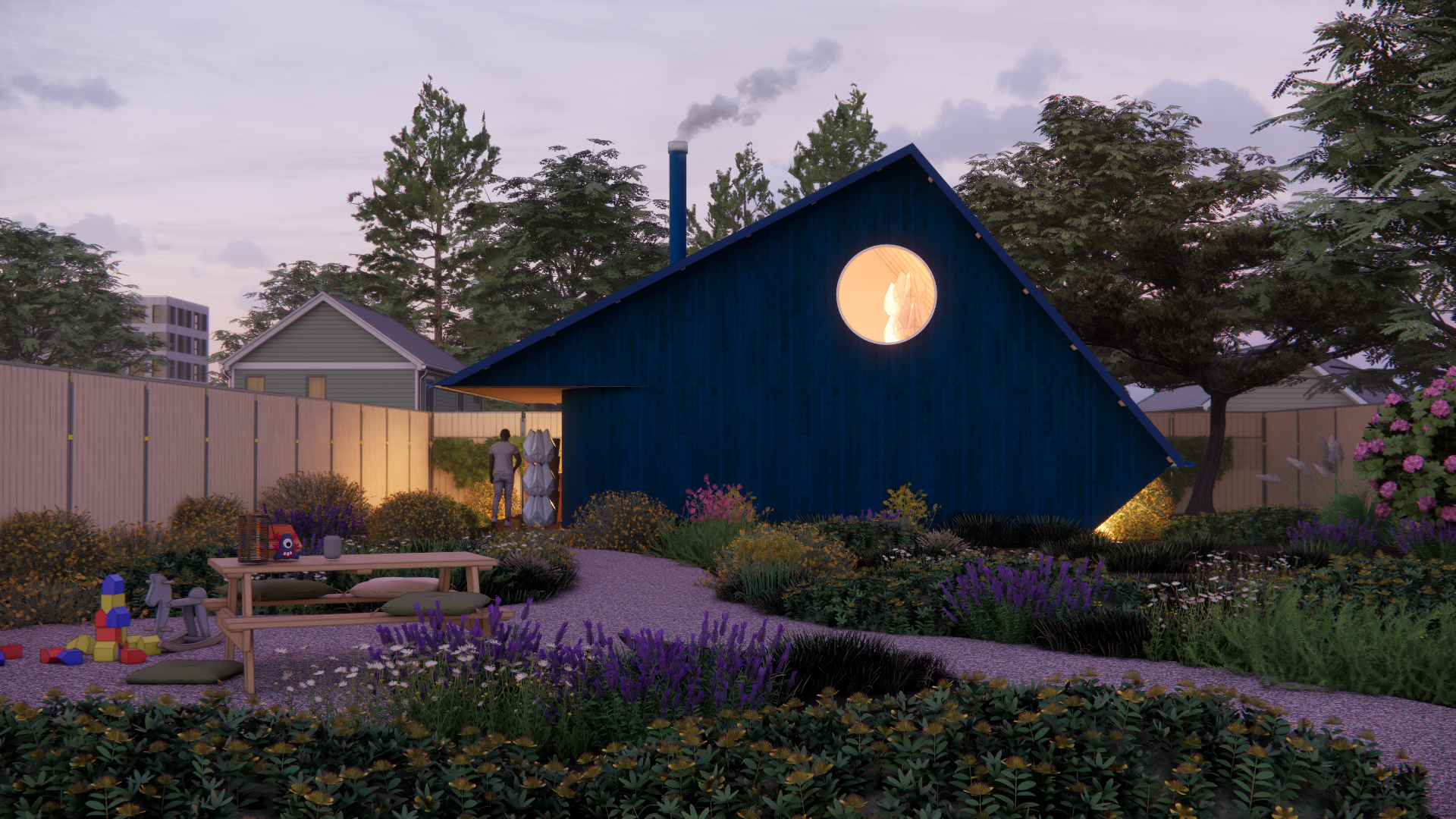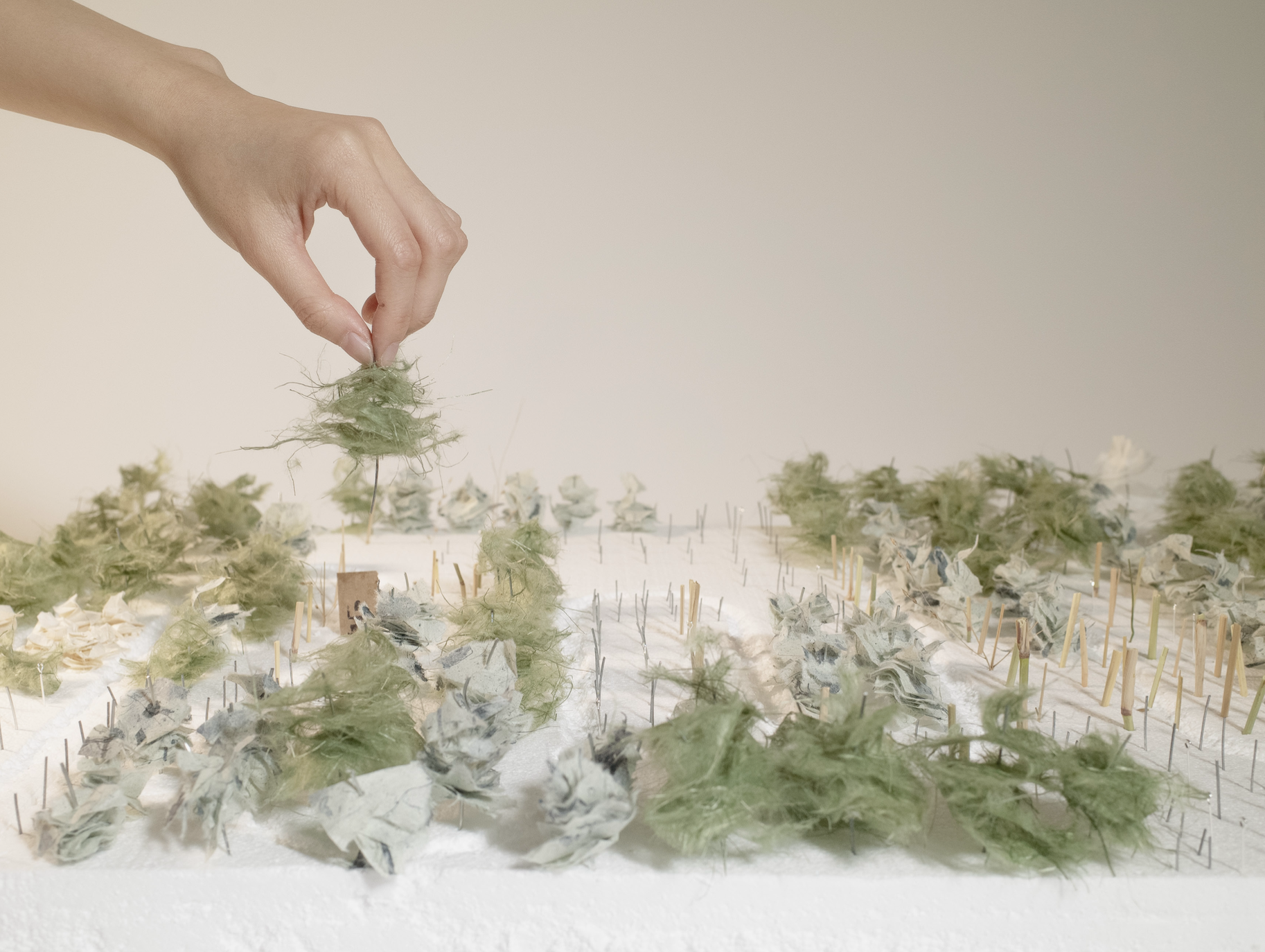HABITAR AL MARGEN
To inhabit, we must prioritize meeting our basic needs: clean and accessible water, healthy food, and a home that provides shelter; these needs can and should be met in any community.
We inhabit the Valle de Bravo-Amanalco basin, a diverse hydrological region that stretches from the Nevado de Toluca volcano, through fertile agricultural fields, and down to the hydraulic dam in the town of Valle de Bravo. We decided to broaden our perspective on the shared territory so that we can have a more logical and coherent interaction in relationship to the geography. We are a collective seeking socio-environmental regeneration through the continuous weaving of networks via concrete actions of accompaniment and specific designs, such as rainwater harvesting and management in designed landscapes, agroecological soil management practices, food production under regenerative practices, and architecture using materials suited to the local context, local techniques, and affordable options. The aim of the project is to bring together collective willpower, knowledge, and ancestral practices.
We embrace the philosophy of “el buen vivir”, striving to expand individual freedoms, opportunities, and capabilities to live with dignity, foster community, and leave a fertile legacy for future generations. We strive to inspire the possibility of harmonious coexistence on Earth through regenerative paradigms—ways of living that honor and care for water, the land, and the rich diversity of life in all its forms.
The main beneficiaries of this project are the inhabitants of the Valle de Bravo-Amanalco basin. With whom we share the water, the mountain, and the territory. Our intention is to reconcile and strengthen, once again, the relationship between rural and urban areas, making the need for cooperation and collaboration between these two spheres evident. The project is a delicate tapestry of exchanges and relationships that interconnects these two landscape entities, creating a permeable margin, a boundary that grows increasingly fertile and diverse.
In 2017, El Renacer del Campo, an agroecological network, was established as a non-profit organization operating locally. It connects farmers with approximately 150 consumers, striving to restore the value of small-scale agriculture.. This network is constantly seeking to facilitate and enrich our relationship with the food system that nourishes us.
El Renacer del Campo, in collaboration with PROCUENCA, initiates a series of projects throughout the basin, creating a territorial “acupuncture” effect. Through tequios (collective community work) and partnerships with other collectives—such as Cosecha de Agua, ASPJ, Los Pulsos del Agua, and Diseño Ambiental Regenerativo, among others—as well as individual initiatives, El Renacer del Campo is revitalizing the rural-urban relationship through a range of targeted interventions.
In 2020, one of the initiatives was the co-design and construction of a space called El Modulito. Developed in partnership with ASPJ, the project utilized a low-impact, adaptable construction system designed to meet the community’s needs with high quality and sustainability. Built with repurposed wood, this small supply center supports the diversification of the local food supply, bringing the flavors of the watershed to life for self-consumption and exchange.
Since 2021, in collaboration with Cosecha de Agua, work has been done to diversify production techniques in the watershed, promoting agroforestry systems and responsible reforestation.
A subproject of this network is Los Pulsos del Agua. An initiative of gastronomic and cultural research that seeks to document and share the accelerated transformation of the territory, its people, their stories, and knowledge. This project is manifested in the publication of a seasonal fanzine.
The impact has extended to the broader community through a network of relationships and synergies with other projects that share the vision of inhabiting the territory in a regenerative way. Inhabiting the basin, its abundance and its erosion, combined with the impacts of global climate change, allows us to understand that a new way of inhabiting the landscape is more necessary than ever. We dream of a diverse network that generates environmental, social, and economic value.
Author: Cosecha de Agua
Author’s Instagram
Other works by the author


